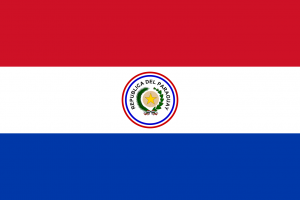Difference between revisions of "Language/Paraguayan-guarani/Grammar/Pronouns"
| Line 117: | Line 117: | ||
== | == Guaraní possessive pronouns == | ||
[TO BE COMPLETED] | [TO BE COMPLETED] | ||
===Video (in Spanish) - Pronombres posesivos en guaraní=== | ===Video (in Spanish) - Pronombres posesivos en guaraní=== | ||
<youtube>https://www.youtube.com/watch?v=ai9s3kbZ8RI</youtube> | <youtube>https://www.youtube.com/watch?v=ai9s3kbZ8RI</youtube> | ||
==Sources== | ==Sources== | ||
Revision as of 00:28, 26 December 2021
Hi Guaraní Learners! 😃
In today's lesson we will learn how to use pronouns in Guaraní.
Happy learning!
Guaraní personal pronouns
The 'che' Personal Pronoun
Like English, Guarani has a set of personal pronouns. The English word 'I' is a pronoun in the first person singular. The Guarani word for 'I' is 'che'.
| Guaraní | Translation |
|---|---|
| che avei | me too |
| che mante | just me |
| ha che ? | and me ? |
| che nahániri avei | me neither |
| che nahániri | not me |
Other Personal Pronouns
Personal pronouns in Guarani are mostly the same as the prefixes used with chendal verbs. They include first person and second person singular, third person (no distinction between singular and plural), first person plural inclusive, first person plural exclusive and second person plural.
| singular | plural | ||
|---|---|---|---|
| 1st person | inclusive | che | ñande |
| exclusive | ore | ||
| 2nd person | nde | peẽ | |
| 3rd person | haʼe | haʼekuéra/ hikuái (*) | |
- Hikuái is a Post-verbal pronoun (oHecha hikuái – they see )
Reflexive pronoun: je: ahecha ("I look"), ajehecha ("I look at myself")
Video (in Spanish) - Pronombres Personales en guaraní
Guaraní demonstrative pronouns
The 'ko' Pronoun
Demonstrative pronouns are used with nouns to make them more specific. The demonstrative pronouns 'this' in English is 'ko' in Guarani.
| Guaraní | Translation |
|---|---|
| ko aranduka | this book |
| ko tapicha | this person |
| ko mesa | this table |
| ko yva mansana | this apple |
| ko kavaju | this horse |
Other demonstrative Pronouns
Demonstrative pronouns recognize at least four deictic degrees (from proximal to distal): ko, pe, amo, ku (and their plural forms).
| Attributives | Non-attributives | |
|---|---|---|
| ko | kóva | “near the speaker” |
| pe | péva | “near the addressee” |
| upé | upéva | “away from both speaker and addressee” |
Note. Chart above reprinted from E. Gregores and J. Suarez.
In Guarani, demonstrative pronouns reflect the proximal-distal dimension of the contexts in which the pronouns are used.
Guaraní possessive pronouns
[TO BE COMPLETED]
